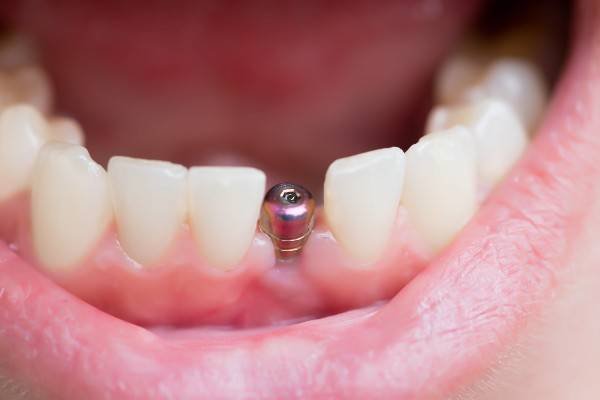A seemingly harmless slip, an unexpected fall, or even a minor fender-bender accidents happen when we least expect them. Most of the time, we dust ourselves off and move on. But what if that minor accident leads to a significant dental problem? A chipped tooth, gum injury, or sudden toothache may not seem like an emergency, but left unchecked, they can cause long-term damage.Dental trauma can be deceptively silent. What may appear as a superficial injury could be a sign of underlying structural damage. Whether it’s a cracked tooth or loosened crown, timely action is key to preventing infections, nerve damage, or even tooth loss.
Understanding Post-Accident Dental Injuries
Dental injuries from minor accidents typically fall under two categories:
1. Visible Damage
This includes:
- Chipped or broken teeth
- Dislodged or loose teeth
- Damaged fillings, veneers, or crowns
- Bleeding gums
Such injuries are often immediately noticeable. While they may not always be painful, ignoring them can lead to infection or worsening damage.
2. Invisible or Delayed Symptoms
Sometimes trauma doesn’t manifest right away. You might experience:
- Sensitivity to hot or cold
- Mild discomfort while chewing
- Tooth discoloration over time
- Swelling around a tooth or gum area
These signs often indicate root damage, cracked roots, or internal bleeding within the tooth.

Why Immediate Dental Attention Matters
When it comes to dental trauma, time is critical. Delays in treatment can cause:
- Infections that spread to other parts of the body
- Permanent nerve damage requiring root canal treatments
- Tooth loss leading to complex restorative procedures
- Jaw misalignment or bite problems
Prompt intervention can save a tooth, prevent invasive procedures, and reduce long-term costs. Knowing when and where to seek emergency care is vital.
Where to Go When Dental Accidents Strike
If you’ve suffered a dental injury, don’t wait for symptoms to worsen. You should seek help from a trusted emergency dentist in Walsall.
These professionals are trained to handle:
- Knocked-out teeth
- Sudden severe pain
- Abscesses or infections
- Fractured crowns or bridges
- Lost fillings or trauma from impact injuries
Most emergency dental clinics operate outside standard hours and are equipped with diagnostic tools like digital X-rays to assess internal damage swiftly. They can offer temporary or permanent solutions depending on the severity of the injury.
Common Treatments for Accident-Related Dental Injuries
Depending on the nature of the injury, treatments may include:
1. Bonding and Fillings
Ideal for small chips and cracks, composite bonding restores the tooth’s appearance and function.
2. Crowns and Veneers
For larger cracks or broken sections, crowns and veneers provide durable protection while maintaining aesthetics.
3. Root Canal Therapy
If the pulp (nerve tissue) is damaged, a root canal can save the tooth and prevent infection.
4. Tooth Reimplantation or Replacement
Knocked-out teeth can often be reinserted if treated within an hour. Otherwise, implants or bridges may be necessary.
5. Antibiotic Treatment
Infections and abscesses are typically treated with antibiotics before any invasive procedure can take place.
Preventive Care After Recovery: Don’t Overlook Dental Hygiene
Post-treatment, many patients mistakenly assume their dental concerns are over. However, poor oral hygiene can undermine even the most advanced dental treatments. For instance, bacteria build-up around a repaired tooth can lead to reinfection or decay. That’s where regular hygiene care comes into play.
Booking a Hygienist in Walsall is essential for anyone recovering from a dental injury. Hygienists provide:
- Deep cleaning to remove plaque and tartar buildup
- Gum assessments and early gum disease detection
- Education on proper brushing and flossing post-treatment
- Preventive measures to protect weakened or repaired teeth
Hygienist visits are especially crucial for individuals with crowns, bridges, or root canal-treated teeth, as these are more susceptible to infection if not properly cared for.
Tips for Managing Dental Injuries Before Reaching a Dentist
Until you can reach an emergency dentist, here are a few immediate steps you can take:
- For a knocked-out tooth: Handle it by the crown, not the root. Rinse with milk or saline and place it gently back in the socket if possible.
- For a cracked tooth: Rinse your mouth with warm water. Avoid chewing on that side and apply a cold compress to reduce swelling.
- For bleeding gums: Apply gentle pressure with a clean cloth or gauze.
- For toothache: Rinse with warm salt water and use over-the-counter pain relief until seen by a dentist.
These steps are temporary and not a substitute for professional care.
How to Avoid Future Dental Injuries
While some accidents are unavoidable, certain practices can reduce your risk:
- Wear a mouthguard during contact sports or high-risk physical activity
- Avoid using teeth as tools for opening packages or bottles
- Get regular checkups to catch signs of weakened teeth or gum issues
- Practice good oral hygiene to strengthen teeth and gums
Regular visits to a hygienist and dentist act as your first line of defense against complications from seemingly small injuries.
When to See a Specialist
In some cases, your general dentist or emergency provider might refer you to a specialist such as:
- Endodontist for advanced root issues
- Periodontist if the injury involves the gums and bone
- Oral surgeon for surgical repair or implant procedures
Walsall has a strong network of dental professionals who can guide your recovery every step of the way.

Conclusion
Accidents may be unpredictable, but your dental care doesn’t have to be. Whether you’re dealing with the aftermath of a tooth injury or trying to prevent future issues, knowing where to turn can make all the difference. Seek urgent treatment when needed, and follow it up with ongoing hygienist support to maintain your results. Remember, even a minor accident can lead to major issues if left untreated. Trust the dental professionals in Walsall to keep your smile safe, strong, and pain-free today and for the long run.EDA Group is proud to connect you with the right care, at the right time.
